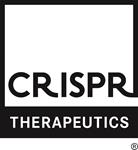Press Release
CRISPR Therapeutics Highlights Strategic Priorities and 2024 Outlook
“We had a landmark year in 2023, marked by the first-ever approval of a CRISPR-based gene-editing therapy in addition to entering the clinic with our in vivo therapies,” said
Strategic Priorities and 2024 Outlook
CASGEVY™ (exagamglogene autotemcel [exa-cel])
- Received regulatory approvals for CASGEVY in the fourth quarter of 2023 in the
U.S. for sickle cell disease (SCD) and inGreat Britain andBahrain for the treatment of SCD and transfusion-dependent beta thalassemia (TDT); also received a positive opinion from the European Medicines Agency’s (EMA’s) Committee for Medicinal Products for Human Use (CHMP) for CASGEVY for both SCD and TDT from theEuropean Medicines Agency (EMA). Exa-cel is the first therapy to emerge from a strategic partnership betweenCRISPR Therapeutics and Vertex Pharmaceuticals. Vertex leads global development, manufacturing, regulatory and commercialization of CASGEVY with support fromCRISPR Therapeutics . - The FDA has assigned a Prescription Drug User Fee Act (PDUFA) action date of
March 30, 2024 , for CASGEVY in TDT. Additional regulatory submissions for CASGEVY are currently under review inSwitzerland and theKingdom of Saudi Arabia , with the submission inCanada planned for the first half of 2024. - Completed enrollment in two global Phase 3 studies of CASGEVY in patients 5 to 11 years of age with SCD or TDT.
- Vertex is engaging with experienced hospitals to establish a network of authorized treatment centers (ATCs) throughout the
U.S. to offer CASGEVY to patients. Nine ATCs have been activated in theU.S. and three inEurope , with the goal of activating approximately 50 ATCs in theU.S. and 25 in the EU. Additionally, Vertex announced an agreement with a major medication contracting organization, Synergie Medication Collective, which covers nearly 100 million lives in theU.S. , to provide access to CASGEVY through an outcomes-based contract.
Hemoglobinopathies
CRISPR Therapeutics has two next-generation research focuses that each have the potential to expand the addressable population with SCD and TDT significantly. First, the Company continues to advance its internal targeted conditioning program, an anti-CD117 (c-Kit) antibody-drug conjugate (ADC), through preclinical studies.
- Second, the Company has ongoing research efforts to enable in vivo editing of hematopoietic stem cells. This work, supported in part by a
$14.5 million grant from theBill & Melinda Gates Foundation , could obviate the need for conditioning altogether, expand geographic reach, and enable the treatment of multiple additional other diseases beyond SCD and TDT.
Immuno-Oncology and Autoimmune Disease
- CRISPR Therapeutics’ next-generation allogeneic CAR T candidates reflect the Company’s mission of innovating continuously to bring potentially transformative medicines to patients as quickly as possible. Clinical trials are ongoing for CRISPR Therapeutics’ next-generation CAR T product candidates, CTX112™ and CTX131™, targeting CD19 and CD70, respectively. Emerging pharmacology data, including pharmacokinetics, indicate that the novel potency gene edits in CTX112 and CTX131 can lead to significantly higher CAR T cell expansion and functional persistence in patients compared to the first-generation candidates. Focusing efforts on these candidates will enable the Company to advance these potentially best-in-class CAR T therapies more efficiently and rapidly. The Company expects to provide a clinical update in 2024 for these next-generation candidates.
CRISPR Therapeutics plans to initiate a clinical trial of CTX112 in systemic lupus erythematosus (SLE) in the first half of 2024, with the potential to expand into additional autoimmune indications in the future. Early clinical studies have shown that CD19-directed autologous CAR T therapy can produce long-lasting remissions in multiple autoimmune indications.CRISPR Therapeutics is expanding trials of CTX131 into hematologic malignancies, including T- and B-cell malignancies, in addition to the ongoing clinical trial in solid tumors.
In
CRISPR Therapeutics is advancing a pipeline of in vivo gene editing programs using lipid nanoparticle (LNP) delivery of Cas9 mRNA and a guide RNA (gRNA) to the liver. Its first two in vivo programs, CTX310™ and CTX320™, each aim to reduce expression of a validated target for cardiovascular disease. Beginning with these programs,CRISPR Therapeutics aims to transform the treatment paradigm for cardiovascular indications and beyond with potential one-time therapies that could recapitulate the proven benefit of targets validated by natural human genetics and other therapeutic modalities.- A Phase 1 clinical trial is ongoing for CTX310, targeting angiopoietin-like 3 protein (ANGPTL3). In humans, naturally occurring loss-of-function variants in ANGPTL3 are associated with reduced levels of serum lipids and reduced risk of atherosclerotic cardiovascular disease. The Phase 1 trial is enrolling patients with mixed dyslipidemias, homozygous familial hypercholesterolemia, and severe hypertriglyceridemia.
CRISPR Therapeutics has initiated a Phase 1 clinical trial for CTX320™, an investigational program targeting lipoprotein(a) (Lp(a)). Elevated Lp(a), which is associated with an increased risk of atherosclerotic cardiovascular disease, is present in approximately one in five people inthe United States and around the world.
CRISPR Therapeutics expects to nominate additional in vivo programs targeting both rare and common diseases this year, to be disclosed in mid-2024.
Regenerative Medicine
CRISPR Therapeutics announced today thatViaCyte, Inc. (a subsidiary of Vertex Pharmaceuticals, Inc.) has elected to opt-out of the collaboration withCRISPR Therapeutics for the co-development and co-commercialization of gene-edited stem cell therapies for the treatment of diabetes. Per the opt-out terms, the on-going collaboration assets will now be wholly owned byCRISPR Therapeutics , subject to a royalty on future sales owed to ViaCyte. The opt-out will become effective in early February. The ViaCyte collaboration assets include CTX211™ (formerly VCTX211™), an allogeneic, gene-edited, immune-evasive, stem cell derived product candidate that is transplanted into patients in a device and intended to produce insulin in a glucose-dependent manner.CRISPR Therapeutics continues to advance a Phase 1 clinical trial for CTX211 for the treatment of Type 1 Diabetes (T1D).CRISPR Therapeutics remains committed to its goal of developing a beta-cell replacement product that does not require chronic immunosuppression.- Separate from the
ViaCyte collaboration, Vertex continues to have non-exclusive rights to certain CRISPR Therapeutics’ CRISPR/Cas9 technology to accelerate development of potentially curative cell therapies for T1D. Vertex paid$170 million toCRISPR Therapeutics in upfront and milestone payments in 2023 as part of that licensing agreement, andCRISPR Therapeutics remains eligible for an additional$160 million in research and development milestones and would receive royalties on any future products resulting from this agreement.
Manufacturing
- CRISPR Therapeutics’ state-of-the-art Good Manufacturing Practice (GMP) facility located in
Framingham, MA is fully operational, and continues to support the production of the Company’s various investigational therapies. Potential benefits of this facility include significantly lower cost of goods, increased flexibility and greater scalability. - The Company’s next-generation allogeneic CAR T candidates manufactured at its internal GMP facility exhibit increased manufacturing robustness, yield and scalability.
Cash Position and Operating Efficiencies
CRISPR Therapeutics begins 2024 in a strong financial position with approximately$1.9 billion in cash, cash equivalents and marketable securities, which is inclusive of a$200 million milestone payments received in January related to the FDA approval of CASGEVY.CRISPR Therapeutics continues to focus on resource efficiency and return on invested capital as it advances multiple clinical programs across its pipeline.
About CASGEVY™ (exagamglogene autotemcel [exa-cel])
CASGEVY is a genome-edited cellular therapy consisting of autologous CD34+ hematopoietic stem cells (HSCs) edited by CRISPR/Cas9 technology at the erythroid-specific enhancer region of the BCL11A gene. CASGEVY is intended for one time administration via a hematopoietic stem cell transplant procedure where the patient’s own CD34+ cells are modified to reduce BCL11A expression in erythroid lineage cells, leading to increased fetal hemoglobin (HbF) production. HbF is the form of the oxygen-carrying hemoglobin that is naturally present during fetal development, which then switches to the adult form of hemoglobin after birth. CASGEVY has been shown to reduce or eliminate vaso-occlusive crises for patients with SCD.
CASGEVY is approved in the
The use of CASGEVY for the treatment of TDT in the U.S. remains investigational. Vertex has submitted a BLA to the U.S. FDA for the potential use of CASGEVY for patients 12 years and older with TDT and has been assigned a Prescription Drug User Fee Act (PDUFA) target action date of March 30, 2024.
About the CRISPR Collaboration and Vertex
CRISPR Therapeutics and Vertex entered into a strategic research collaboration in 2015 focused on the use of CRISPR/Cas9 to discover and develop potential new treatments aimed at the underlying genetic causes of human disease. Exa-cel represents the first treatment to emerge from the joint research program. Under an amended collaboration agreement, Vertex now leads global development, manufacturing and commercialization of exa-cel and splits program costs and profits worldwide 60/40 with CRISPR Therapeutics.
About CD19 Candidates
CTX112 is a next-generation, wholly-owned, allogeneic CAR T product candidate targeting Cluster of Differentiation 19, or CD19, which incorporates additional edits designed to enhance CAR T potency and reduce CAR T exhaustion. CTX112 is being investigated in an ongoing clinical trial designed to assess safety and efficacy of the product candidate in adult patients with relapsed or refractory CD19-positive B-cell malignancies who have received at least two prior lines of therapy.
About CD70 Candidates
CTX131 is a next-generation, wholly-owned, allogeneic CAR T product candidate targeting Cluster of Differentiation 70, or CD70, an antigen expressed on various solid tumors and hematologic malignancies. CTX112 incorporates additional edits designed to enhance CAR T potency and reduce CAR T exhaustion. CTX131 is being investigated in a clinical trial designed to assess the safety and efficacy of the product candidate in adult patients with relapsed or refractory solid tumors.
About CTX211 (to be renamed CTX211™ once the opt-out is effective)
CTX211 is an allogeneic, gene-edited, stem cell-derived investigational therapy for the treatment of T1D, which incorporates gene edits that aim to enhance cell fitness. This immune-evasive cell replacement therapy is designed to enable patients to produce their own insulin in response to glucose.
About in vivo
Our lead investigational in vivo programs, CTX310 and CTX320, target angiopoietin-related protein 3 (ANGPTL3) and lipoprotein(a) (Lp(a)), respectively, two validated targets for cardiovascular disease, and we have initiated a Phase 1 clinical trial for CTX310 targeting ANGPTL3.
About CRISPR Therapeutics
Since its inception over a decade ago,
CRISPR Therapeutics Forward-Looking Statement
This press release may contain a number of “forward-looking statements” within the meaning of the Private Securities Litigation Reform Act of 1995, as amended, including statements made by Dr. Kulkarni in this press release, as well as statements regarding CRISPR Therapeutics’ expectations about any or all of the following: (i) its plans for and its preclinical studies, clinical trials and pipeline products and programs, including, without limitation, manufacturing capabilities, status of such studies and trials, potential expansion into new indications and expectations regarding data generally; (ii) the data that will be generated by ongoing and planned clinical trials, and the ability to use that data for the design and initiation of further clinical trials; (iii) plans and expectations for the commercialization of, and anticipated benefits of, CASGEVY, including the anticipated patient population eligible for CASGEVY in
Investor Contact:
+1-617-307-7503
susan.kim@crisprtx.com
Media Contact:
+1-617-315-4493
rachel.eides@crisprtx.com

Source: CRISPR Therapeutics AG


